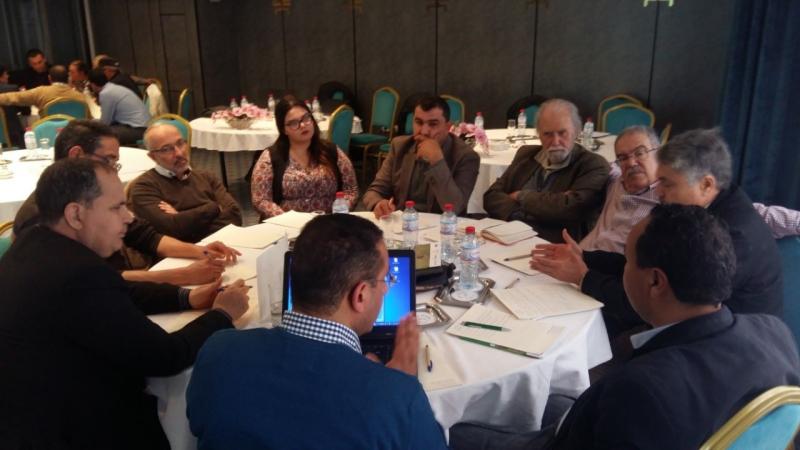Milestones for development of Conservation Agriculture discussed in Tunisia

The representatives of more than 10 public administrations and agencies representing a wide range of agricultural institutions, farmers and farmers associations attended a round table to discuss the milestones for further development of Conservation Agriculture in Tunisia, held in Tunis on 16 March 2017.
The workshop was organized by ICARDA, jointly with IRESA-Tunisia (Agricultural Research and Higher Education Institution) within the frame of the Global Futures and Strategic Foresight project of the Research Program on Policies, Institution and Markets.
Conservation agriculture (CA) is a system-based practice combining no mechanical tillage, permanent soil surface cover, crop diversification and use of adequate crop sequences. CA was first introduced to Tunisia in 1999, where it was pilot-tested in the country’s North-East. ICARDA was very active in supporting and coordinating many of CA projects in Tunisia, including CA in North Africa (CANA), Crops and Livestock Integration for CA (CLCA) projects, generously funded by the Australian Centre for International Agricultural Research (ACIAR) and the International Fund for Agricultural Development (IFAD), respectively.
“The purpose of this roundtable was to summarize the results of latest CA research projects and discuss strategic actions needed to upscale CA practices in different agricultural systems of Tunisia” said Dr. Aymen Frija, Agricultural Economist, ICARDA.
During discussions, the participants debated the priority areas for CA implementation, large-scale manufacturing of low cost no-till seeders, crop-livestock integration, crops rotation and the constraints for the adoption of CA by small farmers.
According to previous research studies, the shortage of biomass, especially during the dry seasons, lead farmers to use straw and crop residues as feed for small ruminants. This constraint is highly relevant due to the importance of livestock for small farmers as source of income diversification and risk management.
Following discussions, the participants agreed on summarizing the outputs of the round table and groups discussions into a strategic document that can support the ongoing development of the national CA strategy of Tunisia. Scientists of ICARDA and IRESA also agreed on developing science-based policy briefs to help with strategic repositioning of conservation agriculture within the national agricultural strategy in Tunisia.
